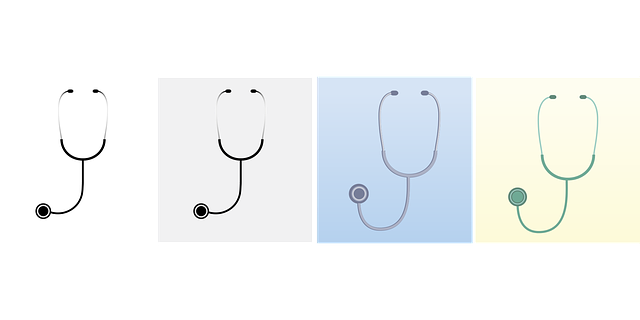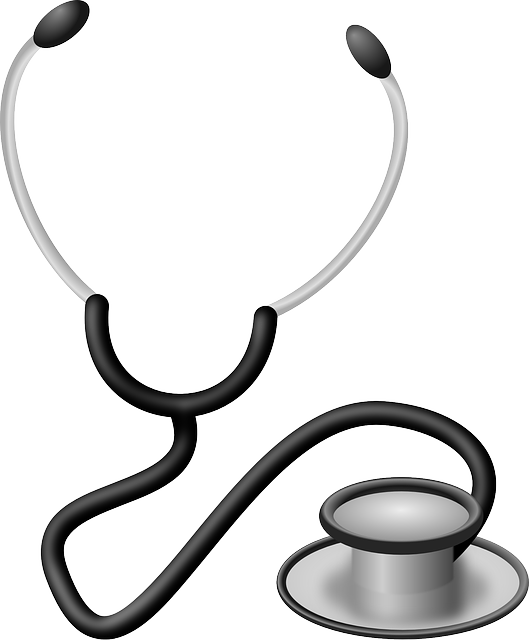Translation services for physician's treatment plans in the UK are vital to overcoming language and cultural barriers in healthcare, ensuring accurate communication, positive patient outcomes, and improved care accessibility. These services bridge gaps between physicians and diverse linguistic patients, foster trust, reduce errors, and enhance understanding. With advanced AI technologies, professional translators deliver personalized, culturally competent care, aligning with UK's multicultural landscape and future healthcare trends. Investing in these services leads to cost savings, efficient consultations, better patient management, and improved overall healthcare outcomes.
In today’s diverse healthcare landscape, language and cultural barriers can significantly impact patient care in the UK. This article explores how translation services revolutionize physician treatment plans by overcoming these hurdles. From understanding ethical considerations to leveraging AI-powered technologies, we delve into best practices that enhance diagnosis, improve treatment accuracy, and foster effective cross-cultural communication. Discover the cost-effectiveness and training opportunities that make translation services an indispensable asset for modern medical practices.
- Understanding the Barriers: Language and Cultural Differences in Healthcare
- The Role of Translation Services: Breaking Down Communication Walls
- Enhancing Patient Care: Accurate Translation for Effective Treatment
- Improving Diagnosis and Treatment Accuracy through Language Expertise
- Ethical Considerations in Medical Translation: Ensuring Patient Privacy and Confidentiality
- Case Studies: Successful Integration of Translation Services in UK Healthcare Settings
- The Future of Healthcare: AI-Powered Translation Technologies
- Cost-Effectiveness and ROI: A Look at the Financial Benefits for Medical Practices
- Training and Education: Preparing Physicians for Effective Cross-Cultural Communication
- Best Practices for Implementing Translation Services within Physician's Treatment Plans
Understanding the Barriers: Language and Cultural Differences in Healthcare

Language and cultural differences can pose significant barriers in healthcare, impacting patient care and treatment outcomes. In the UK, where a diverse range of languages is spoken, these disparities are particularly notable. When patients and physicians speak different languages, effective communication becomes challenging. This barrier can lead to misdiagnoses, incorrect medication prescriptions, and a lack of understanding regarding treatment plans.
Cultural differences also play a crucial role. Patient expectations, beliefs, and preferences for care may vary widely across cultures. Translation services for physician’s treatment plans in the UK are essential to bridge this gap. Professional translators ensure that medical information is accurately conveyed, respecting cultural nuances and ensuring patient consent and understanding throughout the treatment process.
The Role of Translation Services: Breaking Down Communication Walls

In today’s diverse and multicultural society, the role of translation services has become increasingly vital, especially within the healthcare sector. For physicians in the UK, providing culturally sensitive and effective treatment plans is essential to ensuring patient satisfaction and positive outcomes. Translation services play a pivotal role in breaking down communication walls between healthcare professionals and patients from different linguistic backgrounds.
Accurate translation ensures that medical information, symptoms, diagnoses, and treatment options are conveyed clearly and precisely. This is crucial as even minor misunderstandings can have significant implications for patient care. By employing professional translation services, physicians can enhance their ability to connect with a broader range of patients, thereby improving accessibility and quality of care in multicultural communities across the UK.
Enhancing Patient Care: Accurate Translation for Effective Treatment

In today’s diverse healthcare landscape, patients come from various linguistic backgrounds and cultures. For physicians in the UK, providing quality care to this multicultural population requires effective communication. This is where translation services play a pivotal role in enhancing patient care and ensuring successful treatment outcomes. Accurate and culturally sensitive translation ensures that medical information, instructions, and discussions between patients and healthcare professionals are clear and understandable.
By leveraging professional translation services, physicians can ensure that every patient receives personalized and culturally competent care. This is especially crucial when dealing with complex medical concepts or specific cultural practices that may impact treatment preferences. Translation services for physician’s treatment plans in the UK enable healthcare providers to bridge the communication gap, fostering better patient engagement and ultimately leading to improved health outcomes.
Improving Diagnosis and Treatment Accuracy through Language Expertise

In today’s diverse healthcare landscape, understanding patient needs and preferences in their native language is no longer a luxury but an essential tool for enhancing diagnosis and treatment accuracy. This is where translation services for physician’s treatment plans in the UK play a pivotal role. Trained medical translators can ensure that patient history, symptoms, and diagnostic reports are accurately conveyed from one language to another. By bridging this linguistic gap, healthcare providers gain access to more precise and comprehensive information, leading to better-informed decisions.
The expertise of professional translators goes beyond simple word-for-word translation. They possess a deep understanding of medical terminologies in both languages, enabling them to maintain the integrity of medical instructions, prescriptions, and consent forms. This level of proficiency minimizes errors and miscommunications, ensuring that treatment plans are tailored to meet the unique needs of multilingual patients. As a result, healthcare providers can offer more personalised care, ultimately improving patient outcomes and satisfaction in a multicultural society.
Ethical Considerations in Medical Translation: Ensuring Patient Privacy and Confidentiality

When it comes to medical translation in the UK, ensuring patient privacy and confidentiality is of paramount importance. As healthcare professionals, physicians rely on accurate translations to communicate with diverse patient populations. Translation services must adhere to strict ethical guidelines to protect sensitive medical information. This includes implementing robust security measures to safeguard patient records and data during the translation process.
In the UK, medical translators are bound by professional codes of conduct that emphasize confidentiality. Reputable translation companies specializing in healthcare often employ advanced encryption technologies and secure digital platforms to handle patient documents. These measures ensure that translated materials remain confidential and accessible only to authorized personnel, fostering trust between patients and healthcare providers.
Case Studies: Successful Integration of Translation Services in UK Healthcare Settings

In recent years, numerous case studies have highlighted the successful integration of translation services within UK healthcare settings, demonstrating their pivotal role in enhancing patient care and outcomes. These studies illustrate how professional translation services can significantly improve physician’s treatment plans, especially when dealing with non-English speaking patients.
For instance, a study conducted by the British Medical Association (BMA) revealed that accurate translation of medical records and consent forms led to improved communication between healthcare professionals and patients from diverse linguistic backgrounds. This, in turn, resulted in more effective treatment planning, better patient satisfaction, and reduced rates of medical errors. Similar initiatives focusing on translation services for physician’s treatment plans in the UK have shown promising outcomes, emphasizing the necessity of language accessibility in modern healthcare practices.
The Future of Healthcare: AI-Powered Translation Technologies

The future of healthcare lies in seamless communication and personalized treatment, and AI-powered translation technologies are set to play a pivotal role in achieving this. In the UK, where multiculturalism is increasingly becoming the norm, translation services for physicians’ treatment plans are not just a convenience but an essential tool. These advanced systems can instantly translate medical jargon, patient records, and consent forms into various languages, ensuring accurate communication between healthcare professionals and diverse patient populations.
By implementing AI translation during consultations, physicians gain valuable insights into cultural nuances that might influence a patient’s understanding of their condition and treatment options. This technology empowers doctors to tailor their approach, offering more effective care that considers both medical and linguistic needs. With the ability to provide personalized treatment plans in a patient’s native language, healthcare outcomes are improved, and barriers to access are broken down, fostering a more inclusive and efficient healthcare system in the UK.
Cost-Effectiveness and ROI: A Look at the Financial Benefits for Medical Practices

In today’s diverse healthcare landscape, many medical practices in the UK encounter patients from various linguistic and cultural backgrounds. This presents a unique challenge and an opportunity to enhance patient care through effective communication. Translation services play a pivotal role in bridging this gap, offering significant cost-effectiveness for physician treatment plans. By employing professional translation experts, medical professionals can ensure precise and accurate interpretation of medical terms, diagnoses, and treatment options for non-English speaking patients.
This approach not only improves patient understanding but also reduces the risk of medical errors and miscommunication. Moreover, investment in translation services can lead to a substantial return on investment (ROI) for medical practices. Accurate translations enable faster consultations, more efficient documentation, and better overall patient management, resulting in improved healthcare outcomes and increased patient satisfaction. This financial benefit is particularly notable when considering the potential legal and reputational risks associated with miscommunication in sensitive medical contexts.
Training and Education: Preparing Physicians for Effective Cross-Cultural Communication

In today’s diverse healthcare landscape, effective cross-cultural communication is paramount to ensuring successful treatment plans. Physicians in the UK often encounter patients from various ethnic and linguistic backgrounds, necessitating the seamless integration of translation services into their practice. Comprehensive training in cultural competency and language acquisition is crucial for physicians. This preparation equips them with the skills to navigate complex conversations, understand subtle nuances in patient presentations, and build trust across cultural divides. By fostering open dialogue and mutual understanding, these efforts ultimately enhance patient care outcomes and satisfaction.
Specialised translation services tailored for medical contexts play a vital role in this process. Professional translators with medical expertise can accurately convey intricate medical terminology while preserving cultural sensitivity. This ensures that treatment plans are not only understood but also culturally adapted, minimising potential barriers to effective healthcare delivery. Such services contribute significantly to the development of inclusive healthcare practices, empowering physicians to provide optimal care to a diverse patient population across the UK.
Best Practices for Implementing Translation Services within Physician's Treatment Plans

When implementing translation services within physician’s treatment plans in the UK, it’s crucial to adhere to best practices that ensure accuracy and effectiveness. The first step is to choose a reputable translation provider with expertise in medical terminology. This guarantees that complex medical concepts are conveyed precisely, minimising potential errors. Engaging professional translators who are native speakers of the target language is essential for achieving fluent, culturally sensitive translations.
Additionally, establishing clear communication channels between healthcare professionals and translators is vital. Providing detailed clinical information well in advance allows translators to grasp medical contexts thoroughly. Regular quality checks and feedback mechanisms should be incorporated into the translation process to ensure consistent accuracy. This iterative approach fosters trust and reliability, ultimately enhancing patient care through improved communication within physician treatment plans.
Translation services play a pivotal role in enhancing physician treatment plans, especially in diverse healthcare settings. By overcoming language and cultural barriers, these services improve patient care, diagnosis accuracy, and treatment outcomes. As AI-driven technologies continue to evolve, the future of healthcare translation looks promising, offering increased efficiency, cost-effectiveness, and improved patient experiences. Implementing best practices and integrating translation services into UK medical practices can lead to better cross-cultural communication, ultimately benefiting both patients and physicians alike.
